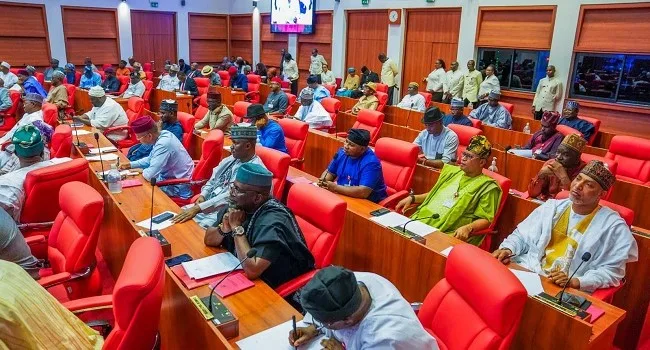On Wednesday, the Senate suspended its plenary session and announced that the debate on the State of Emergency imposed on Rivers State by President Bola Tinubu would be rescheduled for Thursday.
The postponement followed a delay in the commencement of the plenary by about two hours, as many senators, spanning across party lines, had not yet taken their seats. When the session eventually resumed, the debate was further delayed until 3 p.m. without a detailed explanation. The Senate Leader, Opeyemi Bamidele (APC, Ekiti Central), who sponsored the motion, moved to defer the debate, citing Order 1(b) of the Senate Standing Orders 2023 (as amended). This motion was seconded by Minority Leader, Abba Moro (PDP, Benue South), and the chamber moved on to the next item without further discussion.
The motion, as proposed by Bamidele, raised concerns over the worsening security situation in Rivers State. It highlighted the growing threat posed by militants, whose actions, including the vandalization of oil pipelines, have further escalated tensions in the region.
The motion expressed a “clear and present danger,” noting the need for urgent and extraordinary measures to restore peace, good governance, and security in the state.
To approve the declaration, the Senate requires a two-thirds majority (73 out of 109 senators) to activate the emergency rule.
However, there is growing concern that the Senate may not meet this threshold on Thursday.
In the end, the President of the Senate, Godswill Akpabio, put the suspension of plenary and the postponement of the debate to a voice vote, which was overwhelmingly supported by the majority of senators.
On Tuesday night, President Tinubu declared a state of emergency in Rivers State, suspending Governor Siminalayi Fubara, his deputy, Ngozi Odu, and all elected members of the Rivers State House of Assembly for an initial six-month period.
In a national broadcast, Tinubu cited prolonged political instability, constitutional breaches, and security threats as the rationale for the extraordinary measure. The crisis, which has crippled governance in the oil-rich state, stems from a power struggle between Governor Fubara and his predecessor, Nyesom Wike, now the Minister of the Federal Capital Territory.
As part of the emergency measures, President Tinubu appointed Vice Admiral Ibok-Étè Ibas (retd.) as the sole administrator to oversee the state’s affairs until stability is restored. Ibas, who served as the Chief of Naval Staff from 2015 to 2021 under former President Muhammadu Buhari, will now take on the responsibility of managing the state during this critical period.


